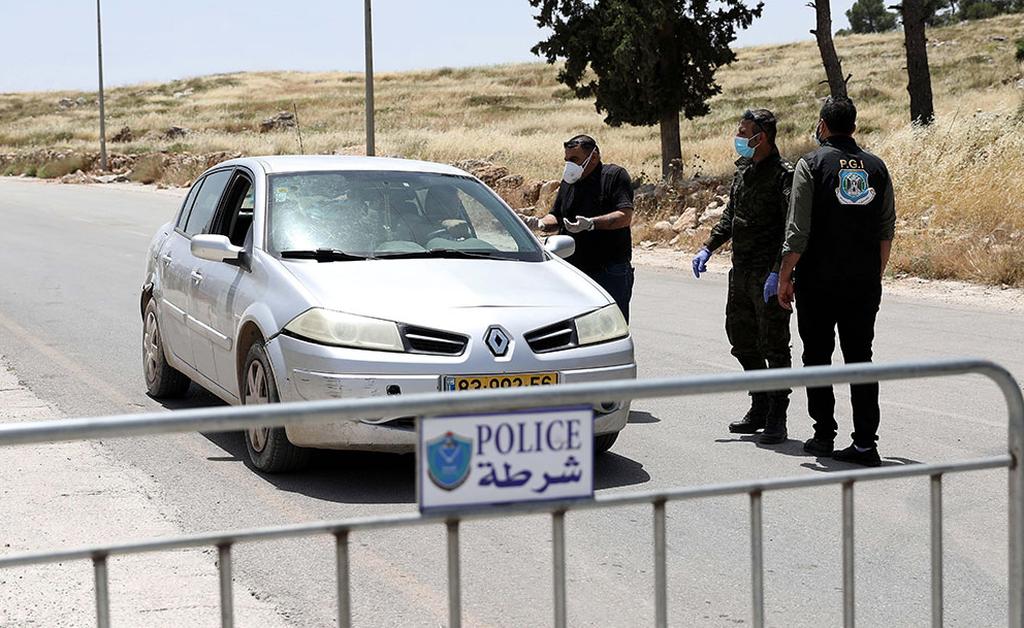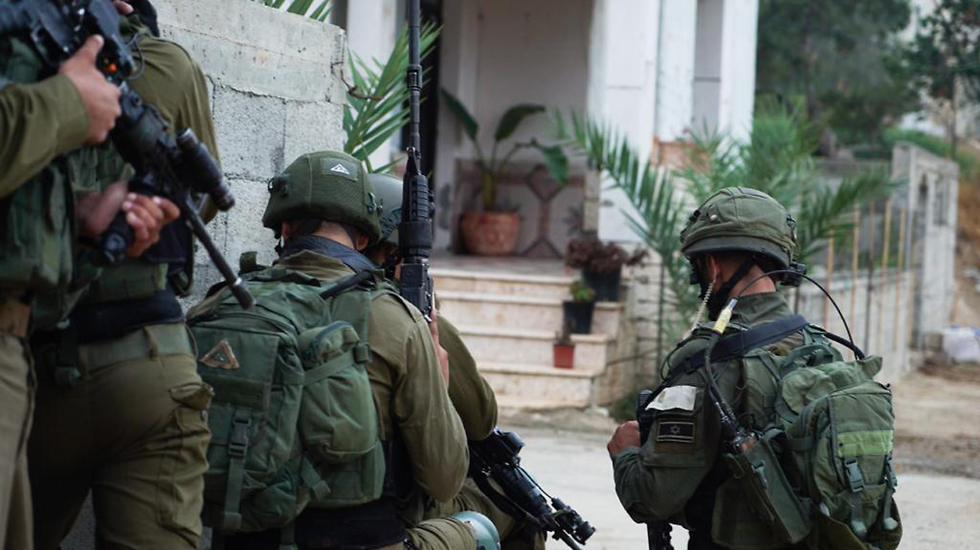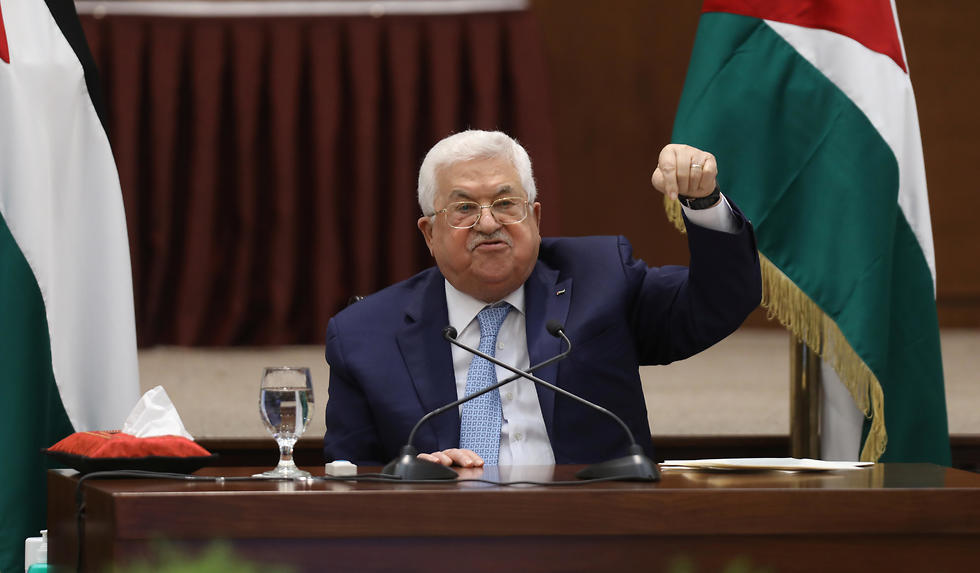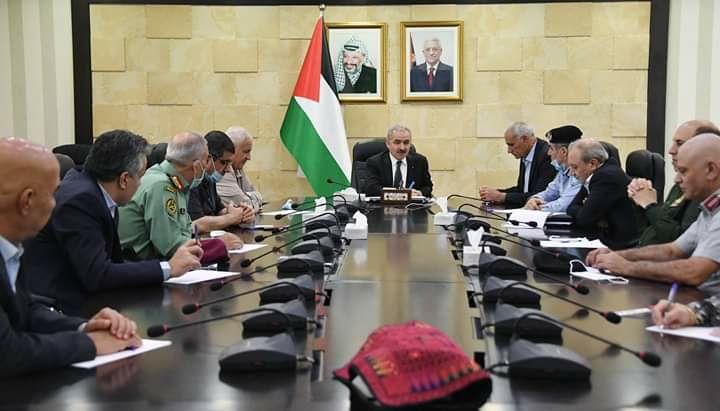Getting your Trinity Audio player ready...
Almost a week has passed since Palestinian President Mahmoud Abbas threatened to back out of all existing agreements with Israel if it acts on its intention to extend sovereignty over West Bank settlements and the Jordan Valley.
In practice, however, relations between the Palestinian Authority and Israel are structured in such a way that leaves Ramallah with no real option of severing ties with Jerusalem and continuing to function independently.
4 View gallery


Palestinian police officers man a roadblock north of the West Bank city of Hebron during the virus outbreak
(Photo: EPA)
The cooperation between Israel and the Palestinians was built gradually and with great effort since 2008 and has withstood several trials and tribulations over the years. It became suffused with both sides' organizational culture.
This mutual effort does consist of security elements, but focuses mainly on routine civilian functions, such as allowing Palestinian emergency services to travel between PA- and Israeli-controlled territories and back, and even authorizing the transfer of goods.
But under the radar, commodities continued to cross from Israel to the Palestinian Authority in recent days without much fanfare.
Business seems to be going on as usual. For now.
4 View gallery


Illustrative: IDF troops carrying out an arrest operation in the West Bank
(Photo: IDF Spokesperson's Unit)
Several hours after news of the end of security ties surfaced, the IDF arrested over 20 Palestinians in a series of raids across the West Bank. As soon as the lull came into effect, the arrests stopped.
It is safe to assume that the two things may have a connection, but the Palestinians are also just coming out of the Eid al-Fitr holiday, and nobody in Israel was interested in interrupting the celebrations, aside from urgent cases.
But this trend happens every year and the Palestinian threat hasn't stood up to the test yet.
It remains unclear whether the IDF will resume raids now the holiday is over.
4 View gallery


Palestinian President Mahmoud Abbas declaring PA agreements with Israel null and void
(Photo: Reuters)
Official routine meetings between Israeli and Palestinian security officials were also brought to a halt, but it is unlikely that cooperation between high-ranking officials, such as the upper echelons of the intelligence services, would do the same because of an order from Abbas.
The Palestinians have already severed ties with Israel before during the 2017 Temple Mount crisis, but reinstated them a few weeks later.
In both cases, Israel left the Palestinians a lifeline. They still can transport goods across the border if they wish to and the IDF is also likely to allow Palestinian patients to get treatment in Israel.
Israel leaves the ball in the Palestinians' court, for the time being, as to not further stoke the flames and not allow these overblown threats to materialize.
4 View gallery


Palestinian Prime Minister Mohammad Shtayyeh meets with Palestinian security officials in Ramallah
Meanwhile, Palestinian security agencies must also deal with growing restlessness among civilians, especially in refugee camps, who are growing tired of the lockdown imposed on them due to the coronavirus outbreak.
The Palestinian Authority introduced a set of stringent social distancing restrictions to prevent gatherings during Eid al-Fitr after a considerable amount of them had already been lifted.
The public was not too impressed and chose to flout the new orders, which, in turn, led security forces to crack down on large crowds using violent means.
Several violent encounters between civilians and security forces were reported across several West Bank cities overnight Sunday.
It seems that through their harsh response, authorities tried to show that cutting ties with Israel does not mean chaos now rules the land.
There is still a sheriff in town and he will make sure no one exploits this new situation to undermine it.

